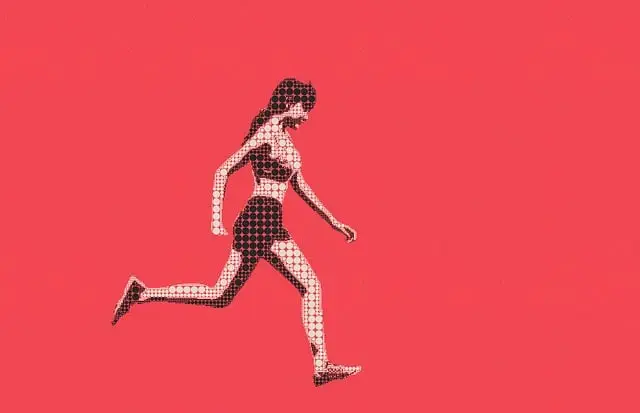Kratom, a tropical evergreen tree from Southeast Asia, has garnered attention in natural health circles as a potential aid for enhancing energy levels and alleviating mood disorders such as depression. Its active compounds, mitragynine and 7-hydroxymitragynine, engage with opioid receptors in the brain to provide a stimulating effect. Strains like Bali and Maeng Da are often cited as some of the 'best kratom for depression' due to their mood-enhancing properties. However, users should exercise caution, as individual responses can vary greatly based on physiology and dosage. The legal status of kratom is complex, with differing regulations across regions. It's essential to consult healthcare professionals before using kratom, considering its potential risks and the need for more scientific research to clarify its efficacy and safety. For those exploring kratom as a natural energy booster or for mood support, it's recommended to combine it with a balanced diet, regular exercise, and mindfulness practices for a holistic approach to managing depression symptoms. Always ensure that the kratom used is of high quality, lab-tested, and sourced from reputable vendors, limiting intake to recommended dosages to promote safety and well-being.
Discover the transformative power of kratom as a natural energy booster with potential benefits for combating fatigue and depression. This article delves into the efficacy of kratom, highlighting the most effective strains for an invigorated day while managing depressive symptoms. Learn how to safely incorporate this botanical into your daily routine, with expert guidance on dosage and precautions, alongside synergistic natural remedies that amplify its benefits. Whether you’re seeking a healthy lift or a holistic approach to mood regulation, the best kratom for depression may be within reach.
- Unveiling the Potential of Kratom as a Natural Energy Booster and Its Impact on Depression
- Exploring the Best Kratom Strains for Energizing Your Day and Alleviating Depressive Symptoms
- Integrating Kratom into Your Lifestyle Safely: Dosage, Precautions, and Complementary Natural Remedies
Unveiling the Potential of Kratom as a Natural Energy Booster and Its Impact on Depression

Kratom, a tropical evergreen tree native to Southeast Asia, has garnered attention in natural health circles for its potential energy-boosting properties and its impact on mood disorders such as depression. The active compounds found in kratom leaves, known as alkaloids like mitragynine and 7-hydroxymitragynine, are believed to interact with the brain’s opioid receptors, which can lead to a stimulating effect that may help combat fatigue. For individuals seeking natural alternatives to conventional energy boosters or antidepressants, kratom strains like Bali and Maeng Da are often cited as some of the ‘best kratom for depression’ due to their mood-enhancing effects. These strains are thought to provide a balanced energy boost without the jittery side effects associated with caffeine or other stimulants, making them a preferred choice for many.
While the use of kratom for its energizing and antidepressant qualities is promising, it’s important to approach its consumption with caution. The effects of kratom can be highly subjective and vary based on individual physiology, dosage, and strain potency. Moreover, the regulatory status of kratom differs across regions, with some countries classifying it as a controlled substance due to its opioid-like effects. Users should exercise prudence and consult healthcare professionals before incorporating kratom into their wellness routine, especially if they are managing depression or any other mental health condition. The impact of kratom on depression is an area of ongoing research, and while anecdotal evidence suggests its benefits, scientific validation continues to be a critical step in understanding its full potential and risks.
Exploring the Best Kratom Strains for Energizing Your Day and Alleviating Depressive Symptoms

When seeking natural energy boosters, many individuals turn to kratom, a plant native to Southeast Asia with potential benefits for both energy levels and mood enhancement, particularly in alleviating depressive symptoms. Among the myriad strains of kratom, some are renowned for their energizing properties and ability to uplift one’s spirits. For those looking for the best kratom for depression and an energizing effect, strains such as Maeng Da Kratom stand out due to its strong alkaloid profile which may promote a sense of well-being and vigor. The unique composition of Maeng Da, including alkaloids like mitragynine and 7-hydroxymitragynine, is believed to influence mood and provide a sustained energy boost without the jittery sensations associated with some caffeinated beverages or synthetic stimulants.
Another potent strain often considered by users seeking a dual effect of energy and mood support is White Vein Kratom. Particularly, strains like White Borneo and White Bali are favored for their invigorating and uplifting qualities. These strains are known to help combat fatigue and depressive feelings, potentially improving cognitive function and focus. It’s important to approach the use of kratom with caution, as individual responses can vary greatly, and the effects can be sensitive to factors like dosage, personal physiology, and the specific circumstances of one’s health. Always consult with a healthcare provider before integrating kratom into your wellness regimen, especially if you are managing depression or any other medical condition.
Integrating Kratom into Your Lifestyle Safely: Dosage, Precautions, and Complementary Natural Remedies

When considering the integration of Kratom into your lifestyle as a natural energy booster, particularly for those seeking relief from depression, it’s crucial to approach its use with careful consideration of dosage and safety precautions. Kratom, derived from the leaves of the Mitragyna speciosa tree, is known for its stimulating effects at lower doses and sedative properties at higher amounts. To harness the best kratom for depression, one must start with a low dose to gauge individual sensitivity. Typically, a small pinch or half a gram is a good starting point for new users. It’s advisable to increase the dosage slowly and monitor your body’s response. Safety should be the priority; users should not exceed more than 6-8 grams in a day and should always purchase high-quality, lab-tested kratom from reputable sources to avoid contamination or adulteration.
In addition to finding the best kratom strain for depression, it’s beneficial to complement its use with other natural remedies that support mental health. Diet plays a significant role; incorporating omega-3 fatty acids found in fish or flaxseeds, B vitamins from whole grains and lean meats, and magnesium-rich foods like nuts and leafy greens can enhance the mood-boosting effects of kratom. Regular exercise, exposure to natural sunlight, and mindfulness practices such as meditation or yoga can also synergize with kratom’s benefits, promoting overall well-being and a healthier lifestyle. Always consult with a healthcare provider before starting any new supplement regimen, especially if you have existing health conditions or are taking other medications. With the right approach, Kratom can be a safe and natural addition to your daily routine for those looking for an alternative to manage symptoms of depression.
Kratom has emerged as a compelling natural alternative for individuals seeking energy boosts and relief from depressive symptoms. This article has delved into the multifaceted benefits of kratom, particularly highlighting some of the best kratom strains that can reinvigorate your day while potentially alleviating depression. It is crucial to approach its integration into daily life with careful dosage and safety precautions, as outlined for a balanced and informed experience. By considering natural complements to enhance well-being, individuals can explore the full potential of kratom responsibly. In light of the insights shared, it is evident that kratom holds significant promise for those looking to naturally elevate their energy levels and manage depressive conditions, provided it aligns with personal health considerations and regulatory guidelines.






